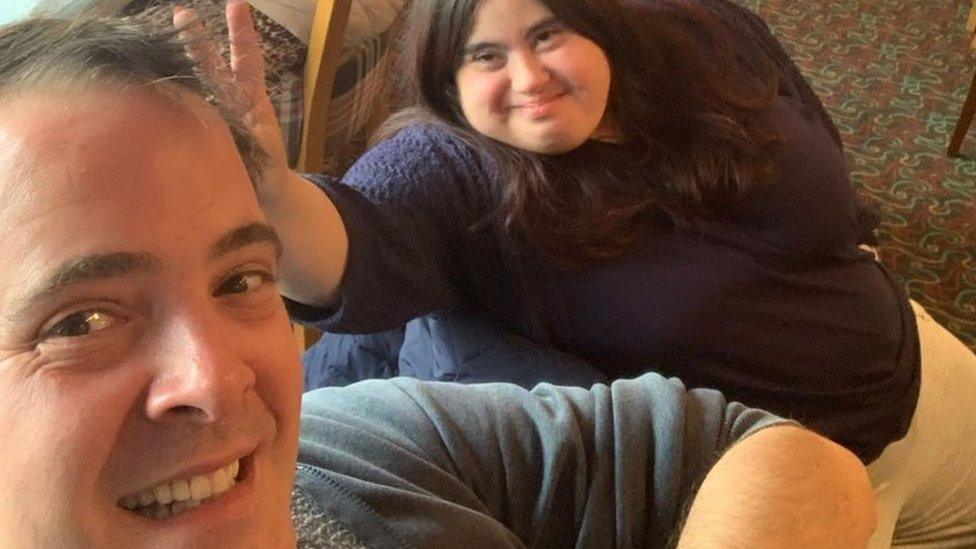Autism: Employers ignorant about disability - autistic man
- Published
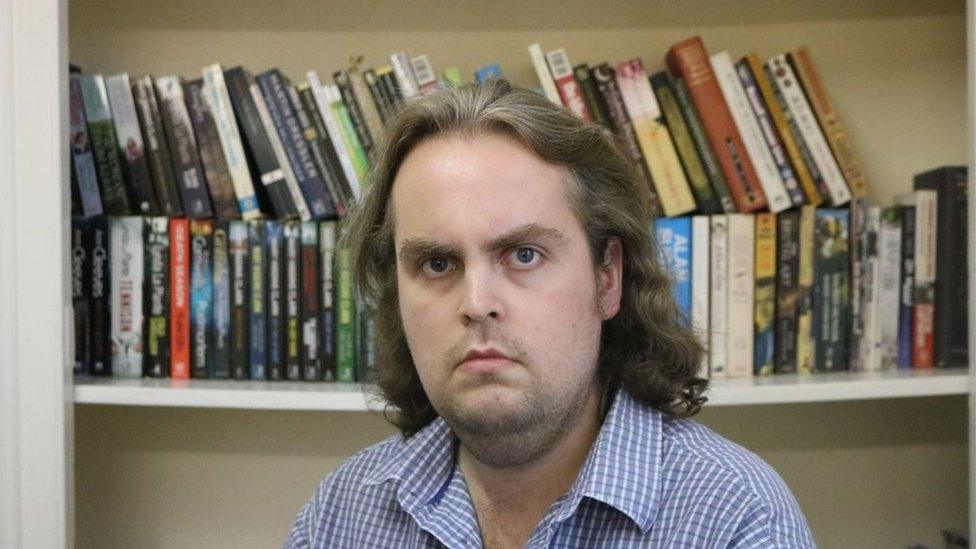
Nath Trevett, a translator, says many employers do not know anything about autism and it creates barriers for autistic people
"A lot of employers are really ignorant."
Autistic man Nath Trevett, from Rhondda Cynon Taf, said employers often misinterpreted autism traits and need training to support people at work.
While 53.6% of all disabled people are in work, that figure is only 21.7% for autistic people, according to the Office for National Statistics, external.
The National Autistic Society called it a "waste of talent" while the Welsh government vowed to improve job access.
Autism means people may act differently, external to the way the others do
The Equality Act 2010, external made it harder for employers to unfairly screen out disabled people and ensured there was a duty to make reasonable adjustments for people at a substantial disadvantage because of their disability.
But Nath, a part-time Welsh translator, said there were still barriers and did not realise until he was made redundant how difficult it was for people like him to find work.
He said: "I really find it stressful actually making applications and looking for work. A lot of employers are really ignorant and that has an effect.
"They don't know anything about autism and so they won't appreciate that people on the spectrum think and talk in a different way and I just think that's ignorant and discriminating."
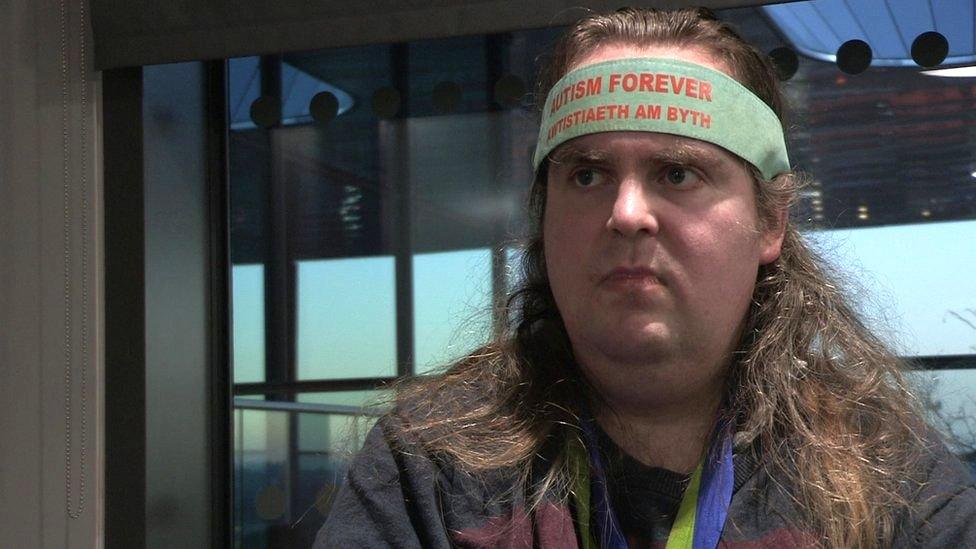
Nath worries a lack of education will mean that autistic people will "go on suffering"
Nath said he was "fortunate" to be employed by an understanding organisation but thinks others are not as lucky.
"One symptom is that people with autism have a tendency to go into detail and I just hate it when an employer jumps to the conclusion that is a bit too much and think that they're in inappropriate for the role when they're actually trying to do is win their trust," he said.
"There needs to be a lot more education and training and understanding and acceptance otherwise people on the spectrum will only go on suffering and feel discriminated and be rejected and it's just not good for anyone's mental health."
He said employers needed to realise that "not all autistic people suffer in the same way as each other" so they can adapt accordingly.
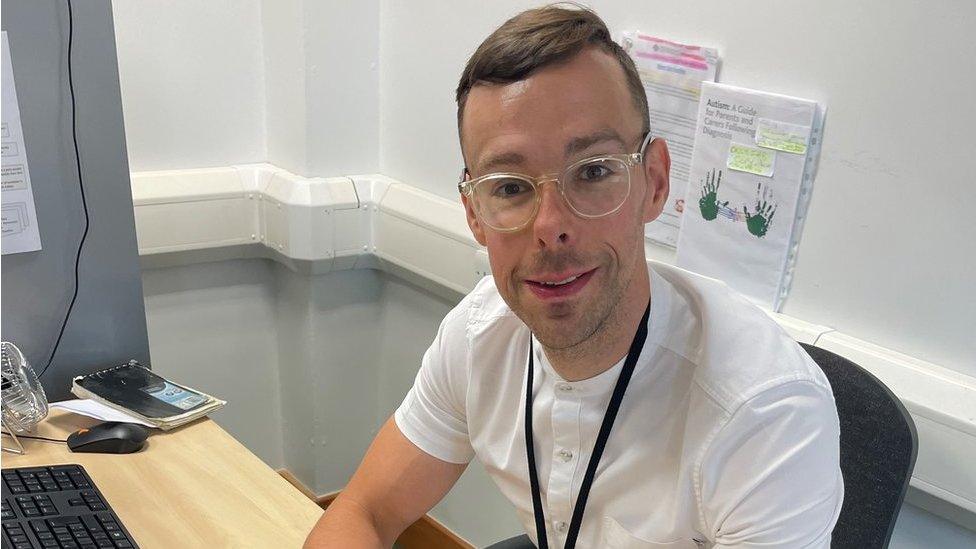
It took Andrew Edwards seven years to find a job to suit him
Andrew Edwards struggled for seven years to get a job before eventually getting employed at Your Space Marches, an autism charity based in Wrexham.
He worked at a football broadcasting channel in the early 2000s and said, at that time, few people had experience with autistic people.
"People with autism need step by step guidance that is clear. They can bring a lot of skills to the job in that they will be very dedicated and enthusiastic but it is more keeping the job is the issue".
How an autism diagnosis changed my life.
He said he would struggle to work a traditional 40-hour week and some autistic people may struggle to work but employers should be encouraged to be flexible.
"It would drain me too much emotionally and physically and my mental health would suffer to work full time," he said.
Because of this, Andrew is also on benefits to help subsidise his income and said being able to work flexibly gave him and his family "freedom" and "a sense of purpose" after his mother died.
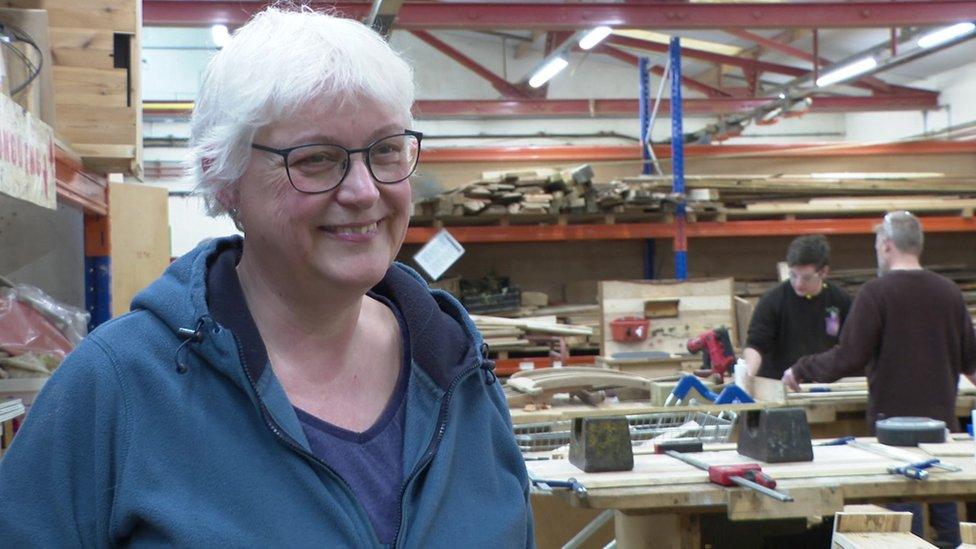
Karen Davies works on a initiative to get disabled people into work
Karen Davies works with an employability service at Pembrokeshire council as part of initiative to help get more autistic people in work.
The workshop in Haverfordwest is preparing its trainees for manufacturing jobs and has received a grant from the Department for Work and Pensions, external.
In 2018, they employed 15 disabled people which has now risen to 70 and includes a number of autistic people.
Ms Davies said: "We have three cafes, a shop, a sawmill, and admin and social media, all of which support people with a wide range of disabilities within the workplace."
She said the group wanted to showcase the skills of people with disabilities and encourage workplaces to make changes.
"Our focus will be educating employers in the processes we have developed in-house so that other employers can take people with autism and support them in their workplace."
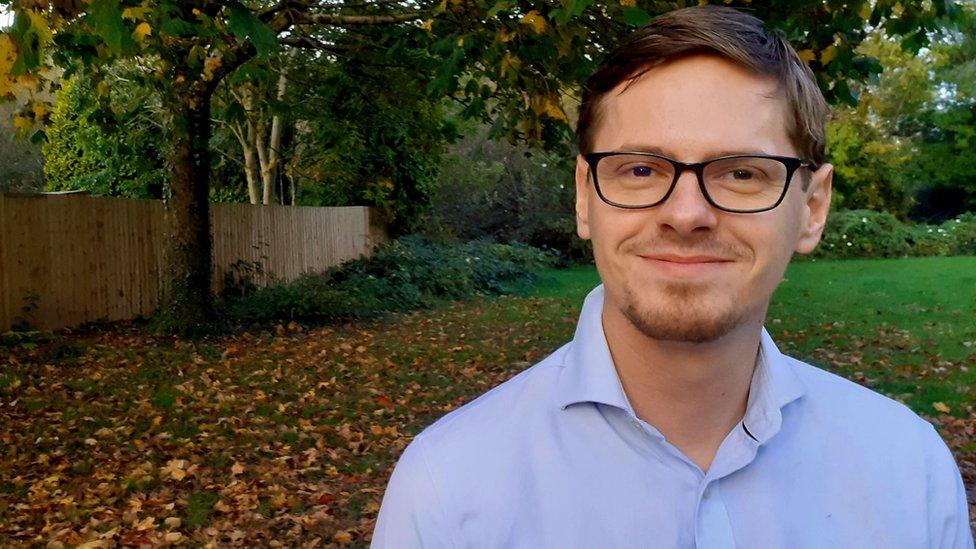
Chris Haines from the National Autistic Society says autistic people have so much to offer
The National Autistic Society said it was very concerned about the employment gap.
External affairs manager Chris Haines said autistic people "deserve the same opportunity as everybody else to succeed in work and reach their potential".
"The employment gap remains far too wide and we're really concerned that autistic people have some of the lowest rates of employment of any group. We think is a huge waste of talent."
While it is not possible for every autistic person to be in work, he said small changes employers could make, such as quiet spaces, using clear and precise language and staff training, could make a "big difference".
He wants the Welsh government's young person's guarantee of training and work, external to be accessible to autistic people, coupled with a national campaign "to improve understanding" of autism among employers.
A Welsh government spokeswoman said: "Our network of disabled people's employment champions, external are playing a vital role in helping to create a culture shift in attitudes to help autistic people in the workplace."
She added that there were a number of pilot schemes in place to improve the experience of autistic people.

- Published19 January 2023
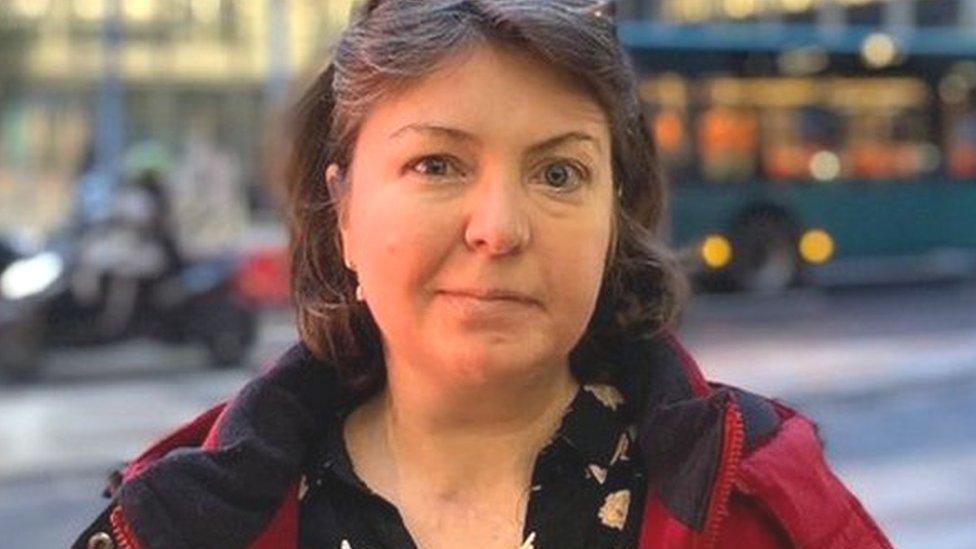
- Published12 November 2022

- Published22 September 2022
